第10章 CHAPTER IV: GOING THE ROUNDS(2)
"Strings be safe soul-lifters, as far as that do go," said Mr. Spinks.
"Yet there's worse things than serpents," said Mr. Penny. "Old things pass away, 'tis true; but a serpent was a good old note: a deep rich note was the serpent."
"Clar'nets, however, be bad at all times," said Michael Mail. "One Christmas--years agone now, years--I went the rounds wi' the Weatherbury quire. 'Twas a hard frosty night, and the keys of all the clar'nets froze--ah, they did freeze!--so that 'twas like drawing a cork every time a key was opened; and the players o' 'em had to go into a hedger-and-ditcher's chimley-corner, and thaw their clar'nets every now and then. An icicle o' spet hung down from the end of every man's clar'net a span long; and as to fingers--well, there, if ye'll believe me, we bad no fingers at all, to our knowing."
"I can well bring back to my mind," said Mr. Penny, "what I said to poor Joseph Ryme (who took the treble part in Chalk-Newton Church for two-and-forty year) when they thought of having clar'nets there.
"Joseph," I said, says I, "depend upon't, if so be you have them tooting clar'nets you'll spoil the whole set-out. Clar'nets were not made for the service of the Lard; you can see it by looking at 'em," I said. And what came o't? Why, souls, the parson set up a barrel-organ on his own account within two years o' the time I spoke, and the old quire went to nothing."
"As far as look is concerned," said the tranter, "I don't for my part see that a fiddle is much nearer heaven than a clar'net. 'Tis further off. There's always a rakish, scampish twist about a fiddle's looks that seems to say the Wicked One had a hand in making o'en; while angels be supposed to play clar'nets in heaven, or som'at like 'em, if ye may believe picters."
"Robert Penny, you was in the right," broke in the eldest Dewy.
"They should ha' stuck to strings. Your brass-man is a rafting dog--well and good; your reed-man is a dab at stirring ye--well and good; your drum-man is a rare bowel-shaker--good again. But I don't care who hears me say it, nothing will spak to your heart wi' the sweetness o' the man of strings!"
"Strings for ever!" said little Jimmy.
"Strings alone would have held their ground against all the new comers in creation." ("True, true!" said Bowman.) "But clarinets was death." ("Death they was!" said Mr. Penny.) "And harmonions,"
William continued in a louder voice, and getting excited by these signs of approval, "harmonions and barrel-organs" ("Ah!" and groans from Spinks) "be miserable--what shall I call 'em?--miserable--"
"Sinners," suggested Jimmy, who made large strides like the men, and did not lag behind like the other little boys.
"Miserable dumbledores!"
"Right, William, and so they be--miserable dumbledores!" said the choir with unanimity.
By this time they were crossing to a gate in the direction of the school, which, standing on a slight eminence at the junction of three ways, now rose in unvarying and dark flatness against the sky.
The instruments were retuned, and all the band entered the school enclosure, enjoined by old William to keep upon the grass.
"Number seventy-eight," he softly gave out as they formed round in a semicircle, the boys opening the lanterns to get a clearer light, and directing their rays on the books.
Then passed forth into the quiet night an ancient and time-worn hymn, embodying a quaint Christianity in words orally transmitted from father to son through several generations down to the present characters, who sang them out right earnestly:
"Remember Adam's fall, O thou Man:
Remember Adam's fall From Heaven to Hell.
Remember Adam's fall How he hath condemn'd all In Hell perpetual There for to dwell.
Remember God's goodnesse, O thou Man:
Remember God's goodnesse, His promise made.
Remember God's goodnesse;
He sent His Son sinlesse Our ails for to redress;
Be not afraid In Bethlehem He was born, O thou Man:
In Bethlehem He was born, For mankind's sake.
In Bethlehem He was born, Christmas-day i' the morn:
Our Saviour thought no scorn Our faults to take.
Give thanks to God alway, O thou Man:
Give thanks to God alway With heart-most joy.
Give thanks to God alway On this our joyful day:
Let all men sing and say, Holy, Holy!"
Having concluded the last note, they listened for a minute or two, but found that no sound issued from the schoolhouse.
"Four breaths, and then, "O, what unbounded goodness!" number fifty-nine," said William.
This was duly gone through, and no notice whatever seemed to be taken of the performance.
"Good guide us, surely 'tisn't a' empty house, as befell us in the year thirty-nine and forty-three!" said old Dewy.
"Perhaps she's jist come from some musical city, and sneers at our doings?" the tranter whispered.
"'Od rabbit her!" said Mr. Penny, with an annihilating look at a corner of the school chimney, "I don't quite stomach her, if this is it. Your plain music well done is as worthy as your other sort done bad, a' b'lieve, souls; so say I."
"Four breaths, and then the last," said the leader authoritatively.
"'Rejoice, ye Tenants of the Earth,' number sixty-four."
At the close, waiting yet another minute, he said in a clear loud voice, as he had said in the village at that hour and season for the previous forty years--"A merry Christmas to ye!"